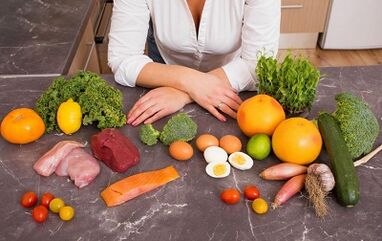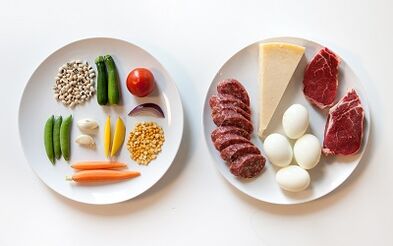
Gout is a disease associated with a violation of metabolism, when an excessive amount of uric acid accumulates in the body.Uric acid salt (sodium bridges) begin to be stored in joints, which leads to their inflammation and other organs.
In the danger zone there are people who use in large quantities of meat, spicy dishes who abuse alcoholic beverages.Other factors related to the development of the disease may be overweight, a decreased lifestyle, nervous stress, inheritance.
To confirm the diagnosis, a blood test is performed for the uric acid content.When analyzing urine, protein is diagnosed in it.
Most often, the gout affects the joints near the fingers.Gout attacks in most cases occur at night or early in the morning.The acute period of the disease can last up to seven days.The disease is chronic with repeated periodic relapses.
Over time, attacks are repeated more and more often, the disease affects new joints and bone destruction may occur.For more than four years sick, dense yellow tubercles form under the joints for more than four years.Occasionally, these formations can explode, white crumbs do not come out of them.
A complication of gout can be the formation of kidney stones, hypertension, kidney pain, heart muscle damage and heart valves.
Diet with gout
The diet with the ground gout involves refusing to eat food saturated with purine.To reduce the content of uric acid in the body, it is necessary to significantly limit the consumption of animal protein.
Some types of meat and fish, outside, yeast, caviar, mushrooms, legumes, chocolate should be excluded.50% of purines are released in soup when cooking, so it is also not recommended to use soup.This applies to any soup (meat, fish, mushrooms).Simple carbohydrates and saturated fats also pose a certain risk.

In the treatment of.Fasting, like excess food, provokes the release of uric acid.In the presence of excess weight, the extremely sharp weight loss is undesirable.Food should be partial, at least five meals a day.
It is recommended to adjust the days of fasting per week, fruits and vegetables.In the remaining days (2-3 times a week), it is permissible to use a small number of lean meat and fish products in boiled or roasted form, at the deterioration phase they are completely excluded.
With gout, the use of a sufficient amount of liquid is required, while canned, carbonated drinks should be avoided.Alcohol is strictly prohibited at any dose, including low weight drinks.It is recommended to drink alkaline mineral water, natural berry and fruit juices (especially citrus fruits), compotes and fruit drinks (especially blueberry and lingonberry), rose decoction.
Water prevents the formation of kidney stones.Sugar does not increase in drinks, as sugar increases the level of insulin in the blood, and this slows down the secretion of uric acid.Cocoa, strong tea, coffee are limited due to their effects on the nervous system.You should drink at least 1 cup of liquid 4-5 times daily per hour before meals, the volume of fluid consumed should be 2.5-3 liters per day.
This diet must be constantly respected, in case of irritation, the diet becomes stricter.
List of prohibited products
- Pork, lard;meat of young animals and parts of animal corpses that give a sticky soup (foot, cartilage, head);
- Soup (meat, fish, mushrooms), meat sauces, cold weather;
- Meat extracts (soup from the package);
- Smoked meat;
- Offal (liver, heart, kidneys, brains) and dishes from offal;
- Varieties of fat of fish, salted and fried fish (with irritation);caviar;canned fish (sardine, sprat, sprats);
- Salt and sharp varieties of cheeses;
- Legumes (peas, beans, lentils, beans, soybeans);
- Cream, fermentation, yogurt;
- Spices and spices (mustard, horseradish, pepper, ketchup, tomato paste), except for vinegar and bay leaves;
- Chocolate, cakes, cakes;
- Cuisine and other fats of animal origin;
- Raspberry, figs, grapes and all grape derivatives (raisins, wine);
- Products made of hot and inflated pastries;
- Products containing preservatives.
A list of products whose content in the diet must be limited

- Salt;
- Sausages;
- Boiled meat and fish.Preference should be given to birds, salmon, salmon, trout.They contain unsaturated fatty acids needed for fat metabolism);
- Cauliflower, beets, sorrel, spinach, asparagus, raven, celery, parsley, green onions, bell pepper, radish, radish, pepper, tomatoes;plums;
- Mushrooms (white, load, champignons);
- Butter;
- Salting and marinade;
- Strong Teaj, coffee, cocoa.
Outside the irritation, lean meat and fish can be included in the menu 2-3 times a week in boiled and boiled form.Cutlets, meatballs, souffle are made of boiled meat or fish.Meat, fish, vegetables can be cooked or baked.Occasionally, it is recommended to perform short -term monod or fasting day: vegetables, fruits (1.5 kg of vegetables or fruits per day), cottage cheese (400 gr. Cheedo curd and 500 ml kefir).The day of discharge of rice is useful: 75 gr.The rice is boiled in 750 ml of milk, also boiled 250 gr.Sugar -free apples (in the form of compost).Rice and apples are eaten during the day in three doses.
During irritations, meat and fish are completely excluded, fasting days are arranged every other day.This alkalizes urine and increases the solidity of uric acid.
Recommended for consumer products
- Chicken, turkey, rabbit;
- Low varieties of fish, seafood: squid, shrimp;
- Gossip products: kefir, cottage cheese, sour cream sauce;
- Milk, adding it to cereals and drinks;
- Eggs, chicken and pigeon (in any kitchen processing except frying), omelets;
- Bread made of thick flour, wheat and rye;
- Cereals, pasta (in moderation);
- Nuts (hazelnuts, cedar, almond, pistachio), seeds;
- Anydo dried fruit (with the exception of grapes), honey;
- Vegetables: white cabbage, cucumbers, zucchini, carrots, potatoes, eggplant, dill;freshly prepared vegetable caviar (zucchini, eggplant);
- Fruits: green apples, pears, citrus, apricots, peaches, berries (except raspberries), avocados, pineapple, watermelon;
- From sweets: marshmallows, marmalade, pastille, jam;
- From drinks: lemon teajaj, green tea, milk coffee, rose decoction, fruit and vegetable juices, fruit drinks, compote, kvass, mineral water;
- Vegetable oil (olive, linen).
For the former you can prepare vegetarian soups: Borsch, cabbage soup, okroshka, peasant soup (with potatoes and cereals), milky soups.
With an irritation of the disease in the early days, only the fluid is recommended, then switching to a milk diet.






















